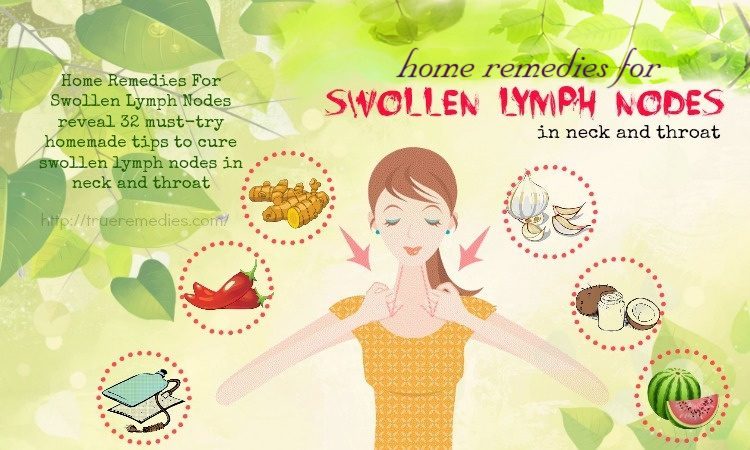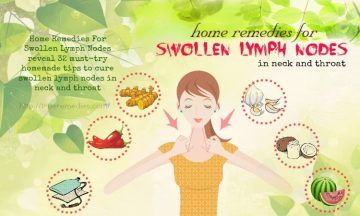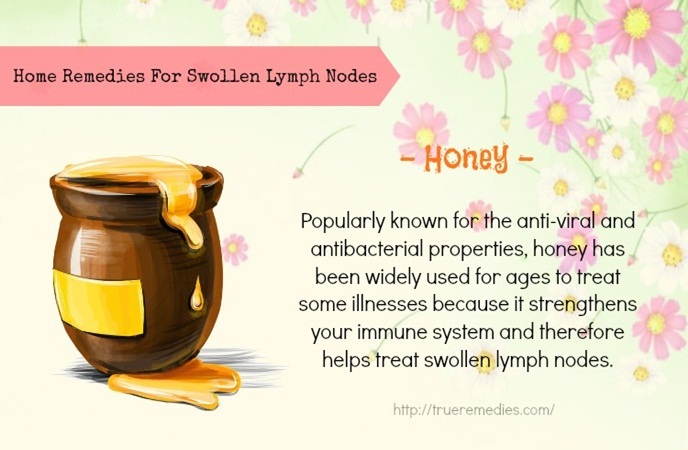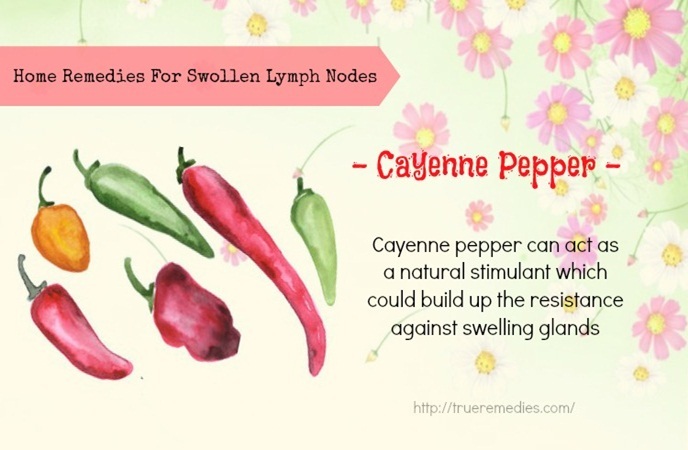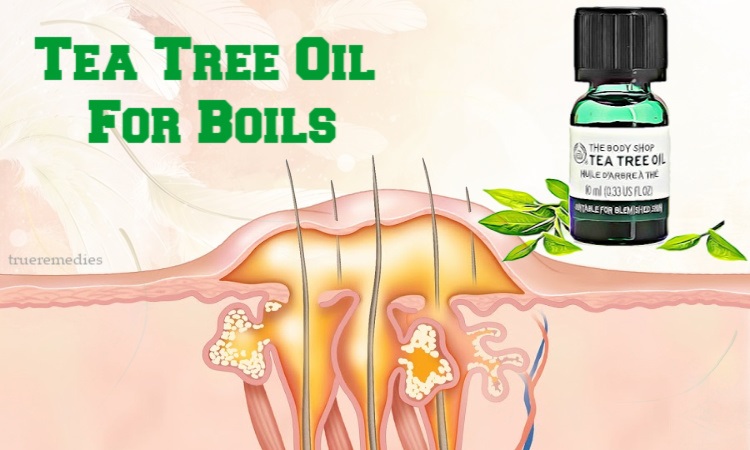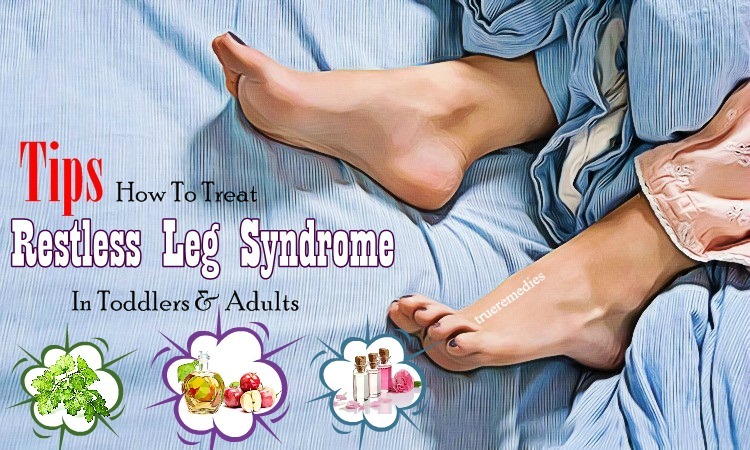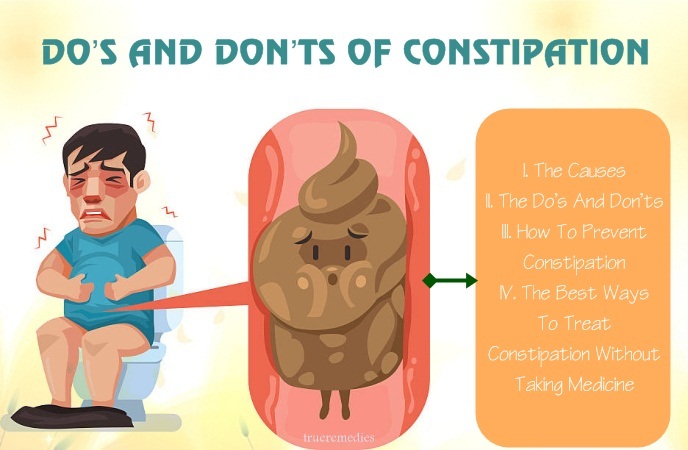Updated: 10/25/2019
Contents
Most body parts of us are lymph nodes, which are important to maintain the resilience of the human body against different diseases. Lymph is a crucial component of the immune system because they can help the body recognize different bacteria and foreign substances entering the body. Swollen or inflamed lymph nodes are medically called Lymphadenopathy or lymphadenitis[1]. Swollen lymph nodes may be resulted from numerous infections such as ear infection, gingivitis, common cold, tonsillitis, skin diseases, etc. This condition could be tender and painful. Today, we will introduce to you some basic information about lymph nodes and 19 home remedies for swollen lymph nodes in neck and throat. Check out on TrueRemedies.com!
Read more:
What Are Lymph Nodes?
Lymph nodes are small, kidney or oval shaped glands of the adaptive immune system, and of the lymphatic system, which is present throughout the human body. Also known as lymph glands, lymph nodes are a part of the lymph system, carrying nutrients, fluid, and waste material between the body tissues and bloodstream.
The lymph system is important to the defense system of the body against disease. Lymph nodes filter the lymph fluid when it flows through them, helping trap viruses, bacteria, and other foreign substances, which are destroyed by some special white blood cells called lymphocytes, and cancer cells.
Lymph nodes might be found in a single form or in groups. They might be either small as the head of a pin or large as an olive. Some groups of lymph nodes could be felt in the groin, neck, arms, abdomen, and underarms. Lymph nodes, in general, are not painful and tender. The majority of lymph nodes in our body could not be felt.
TrueRemedies Partner Solutions

Need a Help from the Leading Expert Online, Available 24/7?
They’re all here and ready to answer your questions online or by phone. Keep asking questions until you get the answer you need.
What Are Causes Of Swollen Lymph Nodes?
Swollen lymph nodes commonly happen when the number of white blood cells inside them has increased in response to a certain infection or other ailments. The quantity of disease-fighting cells will build quickly, causing swelling and pressure inside the lymph nodes.
Some problems can cause swollen lymph nodes, which are:
- Infection: Swollen lymph nodes in the armpits could happen due to injury or infection in the arms and hands. Some infections might lead to the enlargement of lymph nodes throughout the human body.
- Virus: Viral infections could happen due to the common cold and more serious problems like HIV.
- Inflammation: Inflammation in the area of a given lymph node. Some types of immune disorders such as rheumatoid arthritis might also result in swelling lymph nodes.
Cancers: lymphoma – the type of cancer originating in the lymphatic system. Leukemia – the type of cancer of the blood-forming tissue of the body, including your lymphatic system and bone marrow. Other types of cancers might also spread to the lymph nodes.
What Are Symptoms Of Swollen Lymph Nodes?
Generally, lymph nodes larger than 1cm (0.4 inches) in diameter are reckoned abnormal. Swollen lymph nodes are not only enlarged and visible (sometimes) but also painful when being touched.
The symptoms of swollen lymph nodes will depend on the location and the cause of the enlargement.
- Patients might experience symptoms of an upper respiratory infection (sore throat, throat infections, runny nose, fever, cough) and feel a little bit painful or tender nodes under the skin area around the ears, on the upper section of the neck that is under the jaw, or under the chin.
- Nodes that are swollen for over 2 weeks.
- Night sweats
- Weight loss
- Fatigue
- Long-lasting fever
- Nodes that are growing quickly
- Inflamed or red skin over the swollen nodes
- Difficulty in breathing or swallowing
When To See A Doctor?
Swollen or inflamed lymph nodes are generally not a serious disease, but if you have some symptoms of another issue plus with swelling, enlarged lymph nodes, you had better consider a doctor:
- If the swelling of your lymph nodes last for over 2 weeks or you experience symptoms such as night sweats, fever, fatigue, or weight loss
- If your nodes are fixed to the skin, unmovable, and they are developing so fast
- If you could feel the swelling close to your collarbone or in the lower part of the neck.
- If the skin is inflamed and red, and you suspect a further infection
How Are Swollen Lymph Nodes Treated?
The treatment for swollen lymph nodes concentrates on treating its causes. For instance, a bacterial infection might be treated with antibiotics, while a viral infection usually goes away on its own. If the cancer is suspected, your doctor might carry out a biopsy in order to confirm his diagnosis.
Any swollen glands that do not disappear or return to regular size in about 1 month should be carefully checked by a doctor.
19 Home Remedies For Swollen Lymph Nodes In Neck And Throat
1. Warm Compresses
This is one of the simplest home remedies for swollen lymph nodes. You could apply warm compresses on your swelling areas to get it to become normal. This method works as the heat can improve blood circulation, thereby decreasing swelling and pain. What you need to do is:
- Take a washcloth to soak in hot water
- Wring it and place on your swollen nodes for about 10 minutes
- Repeat this routine several times per day for good results
2. Massage
When it comes to home remedies for swollen lymph nodes, this method sounds easy but it requires some special techniques to make it work[2].
Use gentle pressure along with a particular sequence to lightly massage the lymphatic system. There are some special guidelines you should follow to make sure you do not cause any harm to your body. In general, you need to use light pressure and slow movements, because most of the lymphatic vessels are below our skin. Massaging as you do with other body areas will not be effective. Instead, you should let the pressure mimic the pulse and rhythm of the lymphatic system itself. The light stroke you should move your skin in the direction of lymphatic flow in order to encourage the outflow of fluid and waste.
For instance, with the neck and face, it is done in the downward direction. Remember that the gentle nature of massage strokes when your fingers glide carefully across your skin might feel as if there is nothing happen. However, this is how the non-invasive quality of the lymph massage work.
Directions:
- Use your fingers to massage the affected lymph nodes for 5 minutes.
- Do this twice or thrice per day till your swelling disappears.
If possible, hire a professional to do the massage for you.
3. Honey
Popularly known for the antiviral and antibacterial properties[3][4], honey has been widely used for ages to treat some illnesses because it strengthens your immune system; and therefore, it may help treat swollen lymph nodes.
Directions:
- Consume up to 2 teaspoons of raw, organic honey twice per day to get good results.
- Or, you could mix 1 teaspoon of honey with 1 glass of tepid water, drink it daily
4. Apple Cider Vinegar
Apple cider vinegar is a versatile ingredient found in our home kitchen, which may be used to handle many problems, from health to beauty. One of the most little-known uses of apple cider vinegar is reducing symptoms of swollen lymph nodes. Apple cider vinegar may balance the pH level of the human body and cleanse our lymphatic system. It works to build up an alkaline environment. Also, apple cider vinegar contains antibacterial properties[5] that could fight off infections, helping promote the healing process of lymph nodes.
Directions:
- Mix 1 tablespoon of apple cider vinegar with 1 glass of warm water, followed by 1 tablespoon of raw honey to boost its flavor
- Drink the solution 2-3 times per day.
You could also gargle with this solution to get similar effects.
5. Garlic
Garlic possesses anti-inflammatory properties that could reduce the swelling in lymph nodes naturally[6]. This is an antibiotic food which may be useful in cleansing the system, easing symptoms, and promoting the healing process.
Directions:
- Consume 2-3 raw garlic cloves every day. Also, add garlic to your cooking routines
- As an alternative, take a supplement of garlic every day, after consulting a doctor.
6. Peppermint Oil
The peppermint oil could be beneficial in soothing up lymph nodes, as a circulatory stimulant.
Just simply take several drops of peppermint oil, massage it around the glands areas in which you experience pain because of a swollen lymph gland.
7. Echinacea
Echinacea[7] is among the most researched herbs in existence. There are a large number of people using this herb to boost their immune system to help defeat fungal, viral, and bacterial infections. It could also decrease inflammation, damage free radicals, and boost white blood cells. This is a powerful blood purifier.
Indeed, echinacea is a popular herbal treatment which is proved to be effective in controlling and treating swollen lymph nodes in your neck. This is because echinacea has anti-inflammatory properties and polysaccharides that are responsible for the infection-fighting properties.
Our immune system is partly made up of white blood cells. Those cells defend our body against harmful invaders like viruses. The lymphocytes could also support those white blood cells if there are fast replicating viruses if necessary. Once these processes do not work appropriately, the human body could not withstand the assault from viruses, thereby causing illnesses.
By taking Echinacea, it may help enhance the operation of the immune system. The body will produce more white blood cells, so it has enough ability to fight off viruses, like the common cold and flu[8]. Also, it increases the release of interferons, which are effective in fighting the invasion of viruses.
This herb could be consumed by being added to the juice for good results or consumed as a capsule. The recommended dose for reversing swollen lymph nodes is about 300 mg, and you should take it 3 times per day[9].
8. Turmeric
Turmeric roots and its chemical compound – curcumin are thought to be able to prevent and slow the growth of some types of cancer cells[10]. This is because of the antioxidant properties of curcumin which could protect the human body from free radical damage named activated oxygen molecules. The development and spread of cancer involve the molecular pathways and curcumin could interfere with those pathways. Thanks to analgesic and anti-inflammatory properties and antioxidants, turmeric may reverse the viral infections rapidly and improve the condition of swelling.
Directions:
You should also drink 1 glass of turmeric milk twice per day. Or, you can take turmeric supplements with the consultations of doctors. The recommended daily dosage of standardized curcumin extract is from 400 to 600 mg three times per day.
9. Castor Oil
Ideally, using essential oils as a preventative method will aid in maintaining a healthy lymphatic system. If you have swollen lymph nodes, some cold pressed oils are believed to deal with the issue in the short term, including castor oil. Other types of oil for swollen lymph nodes include the oils derived from ravensara, grapefruit, lemon, cajeput, pine, juniper, and rainstorm. Castor oil has been used to deal with a variety of diseases since ancient times thanks to its therapeutic properties[11]. Castor oil is a pharmacological agent that is clarified as an unsaturated omega-9 triglyceride fatty acid. Using castor oil may improve the flow of lymph throughout your body, thereby reducing the swelling condition and the size of swollen lymph nodes. Even, it gives a boost to the immune system.
Directions:
- Rub cold-pressed castor oil on your swollen area for about 5 minutes
- Then, put a warm compress on the area for extra 5-10 minutes
- Keep doing this remedy 1-2 times per day for 1 week
Warning: Castor oil is not good for lactating and pregnant women.
10. Cayenne Pepper
Cayenne pepper may act as a natural stimulant which could build up the resistance against swollen glands. In order to prepare cayenne pepper tea, you need to:
- Add powdered cayenne pepper and honey with the ratio of 1:2 in a glass of warm water
- Consume 3 cups of this tea each day
11. Nutmeg
Using nutmegs may boost your immunity and increase the lymphatic fluid flow. Nutmeg is jam-packed with anti-bacterial and anti-inflammatory properties[12] that may reduce armpit lump.
Note: Avoid taking nutmeg for a long time. Using nutmeg 120 mg or more daily for the long term has been related to hallucinations and mental side effects. Some people have experienced nausea, dizziness, dry mouth, agitation, irregular heartbeat, hallucinations, even dead after using larger doses of nutmeg.
Directions:
- Mix 1 teaspoon of nutmeg powder with 1 cup of hot water to make a treatment
- Add 1 teaspoon of raw honey (optional)
- Drink it every day.
12. Onion
This is another great ingredient helping treat swollen lymph nodes. Onions are at your fingertips in the kitchen. The humble onion could surprisingly treat many illnesses very effectively[13]. Onions are the basis of many historic remedies.
- Grate an onion and have it. However, warning that it can irritate the stomach.
Or, you could add onions to other vegetables in case you do not like its raw taste.
13. Coconut Oil
Coconut oil is jam-packed with moisturizing properties that may aid in promoting the healing process. In addition, it is packed with antibacterial, antiviral, and anti-inflammatory properties[14] that may make this oil an effective treatment for swollen lymph nodes.
- Take a small amount of coconut oil and massage it on your affected areas using your fingertips. It will help improve blood circulation, thereby decreasing swelling.
Or you could also consume 1 tablespoon of extra-virgin coconut oil every day.
14. Aloe Vera
Aloe vera contains healing and moisturizing properties, plus with antibacterial and anti-inflammatory properties[15], so it may help people who suffer from swollen lymph nodes.
- Extract the gel from a fresh aloe vera leaf
- Apply the gel over your affected areas and wait for 20 to 30 minutes before washing it off with cold water
- Repeat this routine twice or thrice per day for a week to see good results.
15. Eucalyptus And Tea Tree Oil
Tea tree oil is jam-packed with antibacterial, antispasmodic, antiseptic, and antimicrobial properties[16] that could cure swollen lymph nodes. This may help people with swollen lymph nodes due to the common cold or upper respiratory tract infection. You just need to:
- Add warm water to a small bowl and followed by 3-4 drops of these oils.
- Inhale the steam of the combination of eucalyptus and tea tree oil with the break of 4 to 5 seconds in between
- Use a towel to cover your head during the process
- Repeat this routine once per day for 15 minutes to improve your swollen condition.
16. Licorice Tea
Thanks to anti-viral and anti-inflammatory properties[17], licorice may help if the swollen lymph nodes are due to infection.
Directions:
- Mix ½ teaspoon of each of licorice powder and dried chamomile flowers, 1 clove, and a pinch of cinnamon powder
- Add these ingredients to a cup of hot water and boil it for a few minutes
- After straining the water, drink it slowly
- Drink the tea for at least 2 cups per day
Note: Licorice root comes with potential side effects and contraindications. Most notably, it's not to be used in patients with high blood pressure.
17. Spirulina
Spirulina is a great source of protein, vitamin B, antioxidants, copper, omega-3 fatty acids and minerals[18]. This herb has a high content of nutrients, and spirulina can help with overall health, which may help with swollen lymph nodes (depending on the reason for them). Also, it may ward off viruses and bacteria. Sprinkle it in the morning smoothie to take advantage of its benefits. You could also take its supplements with the consultation of a doctor.
Note: Make sure that you are using organic spirulina.
18. Panax Ginseng
Ginseng has been famously used as an ancient Chinese and Indian remedy that is able to treat many health issues[19], especially the common cold and flu, which are two problems associated with the condition of swollen lymph nodes. According to a study conducted by researchers at the University of Maryland Medical Center, American Ginseng may treat colds and relieve the associated symptoms of swollen lymph nodes like a fever[20].
To make use of this ingredient, you can use it in the powder form, or a liquid extract or capsules. It is recommend taking 400mg of ginseng dose every day for about 1 week to treat the flu, cold, and swollen lymph nodes effectively[20].
Warning:
A large number of studies have proven the safety of using ginseng for many acute health issues. Nonetheless, it is crucial to consult a doctor to make sure you are using this ingredient properly.
19. Cleavers
Goose Grass or Cleavers is a helpful herb which may reinforce and strengthen the operation of lymphatic system of the human body, thereby helping detoxify the whole system.
Cleavers – a therapeutic herb is known to be able to stimulate the activity of lymphatic system as well as organs so they could function properly[21]. Cleavers also has alternative effects, meaning it might help in cleansing and nourishing the blood. This is a perfect combination. You need to reference the strength/concentration of the tincture before using this method because every company produces a different strength tincture. As an alternative, it could be mixed with liquid or dried herbs which are helpful in lymphatic health.
Extra Tips On Treating Swollen Lymph Nodes
Consult your doctor instantly if your lymph nodes keep growing and you cope with difficulty breathing
- Take plenty of fluids and water
- Keep yourself clean and dry to boost the healing process
- Cut your consumption of caffeine.
- Plan a healthy diet which is high in vitamin C and E, calcium, iron, omega-3 fatty acids, and magnesium
- Avoid picking the affected areas because it might worsen your situation
- Do not self-medicate without the supervision of a professional
- Give up smoking and avoid secondhand smoke
- Avoid shaving your armpits if there are swollen lymph nodes
- Avoid sharing your personal items, such as a towel, with other people
- Avoid consuming spicy foods
- Avoid using talcum powder
The mentioned-above home remedies for swollen lymph nodes should be started early to reap the full benefits.
These remedies use natural ingredients which could be easily found in most health stores and even your kitchen. Remember that swollen lymph nodes are not a disease in itself. Instead, they are a manifestation of a certain underlying condition. Most of these methods are safe to use, but some might come with some slight side effects; thus, it is best to consult your doctor before using any herbal treatments.
To contribute any ideas about this topic of Top 19 Home Remedies For Swollen Lymph Nodes, leave your words at the comment box below. We will reply as soon as possible. If you want to learn more about natural, homemade remedies for other illnesses and conditions, visit our main Home Remedies page.

